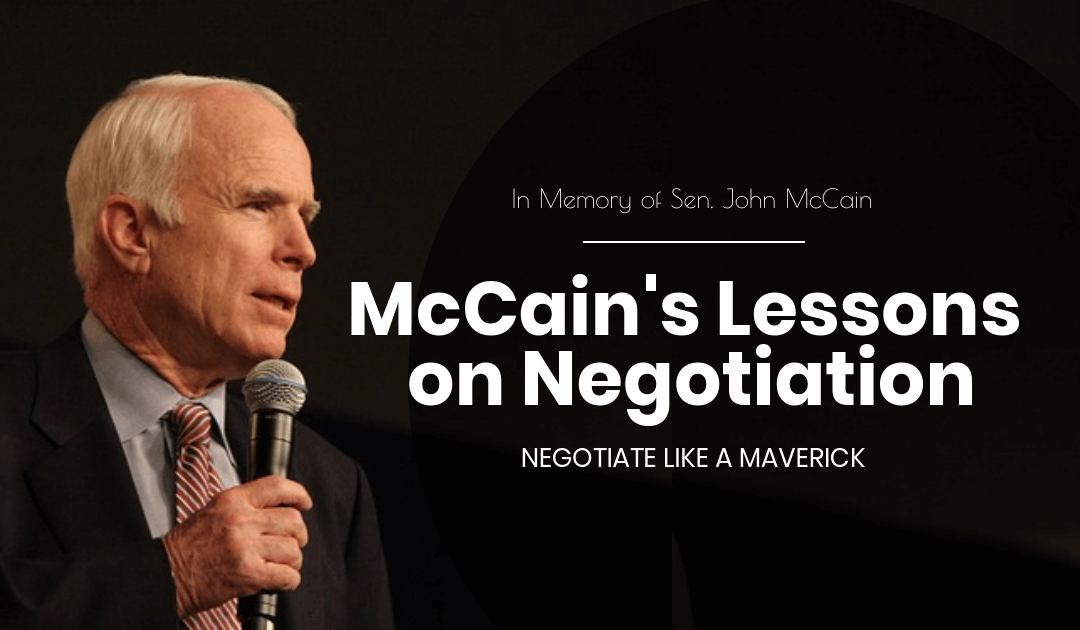For reflection and remembrance after the passing of Senate Maverick John McCain we are sharing his three lessons on negotiation. This article was originally published Thursday, July 3, 2009 in “The Arizona Republic.”
I recently flew to Washington, D.C. and Sen. John McCain was on the same flight (in coach, too). Since he has a well-deserved reputation over the years for taking a lead role in successfully negotiating bi-partisan compromises on a number of difficult issues, I asked him to share with me his key negotiating principles.
We can all learn from his response.
1. Be trustworthy
McCain told me your word and being trustworthy is absolutely critical to negotiation success. I wholeheartedly agree. Without credibility, anything you say and every move you make will be viewed with suspicion and will make any negotiation more protracted and less likely to result in a mutually beneficial outcome.
McCain then interestingly reached across the political aisle to praise Sen. Ted Kennedy’s negotiation effectiveness, which McCain attributed in part to his reputation for keeping his word. “Once he gives you his word,” McCain told me, he’s not going to go back on it.
By contrast, McCain said he had “seen people in this town (Washington, D.C.) change positions hundreds of times” for a variety of reasons and circumstances. That obviously makes reaching a deal far more challenging.
2. Know your issue
It seems like such a basic requirement – know your issue. Of course we should all do our homework and know the facts on the table. Critically, however, McCain’s focus on this confirms the fact that many don’t sufficiently do their homework.
Instead, for a variety of reasons, they sit down at the table without the ability to engage at a productive level. As a result, they try to broadbrush the issues and focus solely on the forest and not the trees.
Certainly there is a time and place for focusing on the forest. But when you’re at the negotiating table trying to forge a mutually satisfactory deal, understanding the details substantially increases your likelihood of achieving your goals.
3. Be willing to compromise
Finally, McCain told me you must be willing to compromise. Again, I agree. In fact, the very nature of most negotiations involves a back and forth process that almost inevitably involves each party compromising on something significant.
I would add that you should not only be willing to compromise – but you should prepare for it in advance. When and how and why you compromise and make your moves have strategic ramifications.
Sen. McCain’s lessons strike at the core of many negotiations. Now it’s up to us to do more than understand them – we must implement them.
*Marty Latz is the founder of Latz Negotiation, a national negotiation training and consulting company. He can be reached at [email protected]. If you would like to compare McCain’s lessons on negotiations to Trump’s, that’s available in Marty Latz’s new book, “The Real Trump Deal: An Eye-Opening Look at How He Negotiates.”

